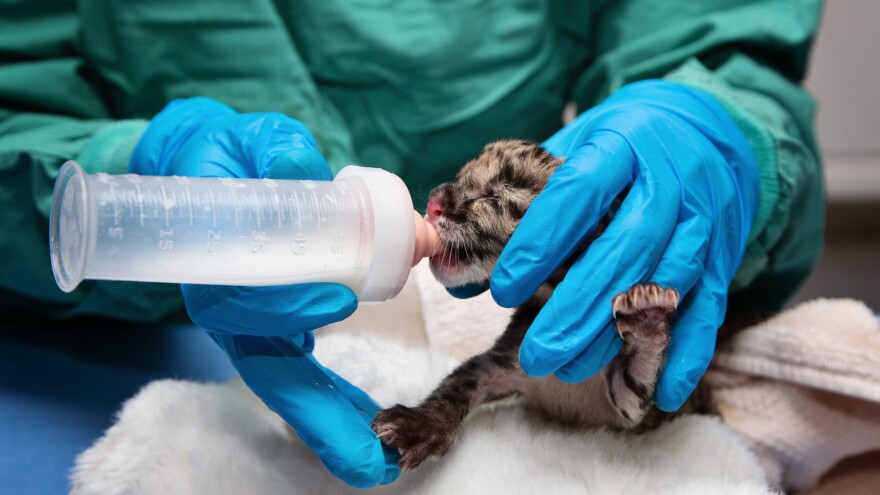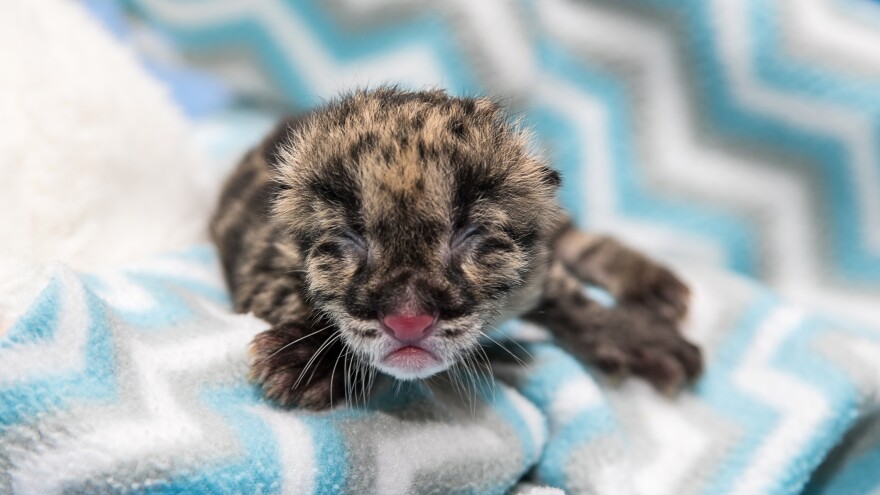In a birth announcement of sorts, the Smithsonian National Zoo and the Nashville Zoo released a joint statement Thursday saying that a male clouded leopard cub was born on March 1. The cub is the first of his species to be born from artificial insemination using frozen (and then thawed) semen.
Clouded leopards have difficulty reproducing outside of their natural habitat and have been listed as vulnerable on the IUCN Red List of Threatened Species since 2008.
#Squee science 1st! First clouded leopard cub born from cryopreserved semen @NashvilleZoo in collab. w @NationalZoo. https://t.co/7A4HfuHOXV pic.twitter.com/WFqfFSm9qt
— National Zoo (@NationalZoo) March 2, 2017
Tweets from the two zoos have been greeted with delight. The day-old cub has been declared "adorable" — but he is also important, according to the scientists at The Smithsonian Conservation Biology Institute.
"This cub ... is a symbol of how zoos and scientists can come together to make positive change for animals and preserving global biodiversity," said Adrienne Crosier, a biologist at the Institute. "Collaboration is the key to conservation of clouded leopards, along with so many other rare and endangered species we care for and study."
Copyright 2021 NPR. To see more, visit https://www.npr.org. 9(MDEwMTk5OTQ0MDEzNDkxMDYyMDQ2MjdiMw004))





